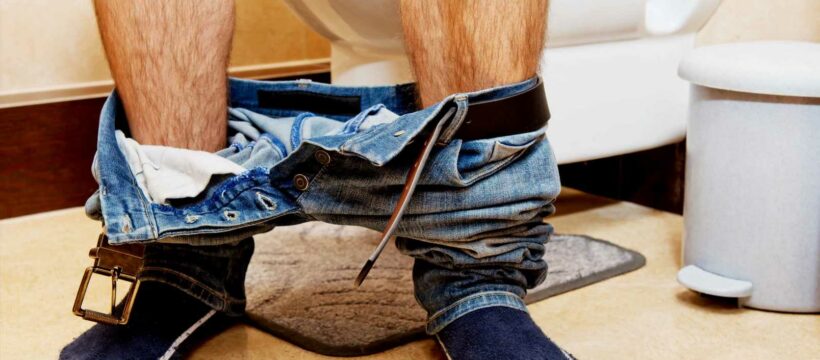THERE is something very embarrassing about talking about bathroom habits.
But like it or not, everyone poops, and we really should be talking about it if we want to know what's normal and when we need to seek medical help.
Dr Sarah Jarvis, GP and clinical director of Patientaccess.com explained that bowel movements are affected by a "huge range of factors".
"Some of these you can't influence – even if fed an identical diet, some people would open their bowels more often than others," she added.
However, it's still worth keeping on eye on your bowel habits so you know when a visit to the GP is in order.
How many poos a day is normal?
Read more on bowel habits
As Deborah James dies of bowel cancer – the 5 symptoms she wanted you to know
I’m a bowel expert – here’s why your ‘shy bowel’ is dangerous
According to Dr Sarah most people have a "fairly regular pooing pattern".
Studies suggest 98 per cent of people go between three times a day and three times a week.
And many people tend to go at about the same time every day.
"Some medical conditions, such as inflammatory bowel disease or diverticular disease, can lead to frequent, loose bowel motions," she added.
Most read in Health
Warning to 30million as Covid and flu cases set to surge in winter 'twindemic'
Urgent prescription warning as 29 killed and thousands harmed by NHS mistakes
Bloating and 4 other IBS warnings signs – and 7 tips to ease symptoms
Major change to GP appointments as 'red alert' could see you turned away
"But if you don't have an underlying medical condition directly affecting your bowels, many of the factors that determine how often you open your bowels relate to your diet and lifestyle," she explained.
Physical activity, for example, can help stimulate peristalsis – co-ordinated movements of the rings of muscle around your bowels that propel food through your digestive system.
So being physically active isn't just good for fitness levels – it can help keep you regular too.
What consistency is normal?
Many medicines can cause looser stools or constipation as a side effect, the expert said.
Some of these include:
- Codeine-based painkillers, sometimes called opioids – this includes combination painkillers such as co-codamol and co-dydramol, as well as very strong painkillers such as morphine
- Some antidepressants
- Iron tablets
- Some medicines used for overactive bladder
- Parkinson's disease treatments
"If you're taking medication and you feel it might be linked to constipation, your pharmacist will be happy to advise," she said.
"Your poo is made up of a combination of food that hasn't been absorbed into your system, waste products, bacteria that live naturally in your gut and water.
What should your poop look like?
There are seven types of poop, according to the Bristol Stool Chart, and the type you expel depends on how long it spent in your bowel.
But your overall health also plays a role in what your poo looks like.
Based on the stool chart, types one and two indicate constipation, types three and four are the ideal poos and types five to seven indicate diarrhoea.
Type 1: Seperate hard lumps
Type 2: Lumpy and sausage like
Type 3: A susage shape with cracks in the surface
Type 4: Like a smooth, soft sausage or snake
Type 5: Soft blobs with clear-cut edges
Type 6: Mushy consistency with ragged edges
Type 7: Liquid consistency with no solid pieces
"Changes to your diet and lifestyle can alter all of these," she explained.
Including more fibre in your diet can help helps "bulk out your stools", allowing you to go more regularly and with less straining, she explains.
Examples of fibrous foods include: vegetables, fruits, pulses, beans and lentils
"If you're dehydrated, more water from your gut will be reabsorbed into your system.
This makes poos smaller, harder and more difficult to pass," she adds.
Keeping an eye on what's 'normal' for you though is crucial, as is being aware of the signs and symptoms of bowel cancer.
The five red-flag symptoms of bowel cancer include:
- Bleeding from the back passage, or blood in your poo
- A change in your normal toilet habits – going more frequently for example
- Pain or a lump in your tummy
- Extreme tiredness
- Losing weight
If you notice any changes to your usual habits, don't be embarrassed, speak to your GP.
Read More on The Sun
Ukrainian refugee opens up on heartbreak after being dumped by love-rat Brit
Woman who bought mansion with £6m given by mistake gives her bizarre reason
The Sun launched the No Time 2 Lose campaign in April 2018 – to call on the Government to lower the screening age to 50 and raise symptom awareness.
Meanwhile, here is how you should really be pooping – according to a pelvic floor expert.
Source: Read Full Article









